20 April 2020: Home Learning
Hello and welcome back to school (kind of) after Easter holidays (kind of)!
I hope you’re all doing okay and finding some kind of routine.
There are lots of things I’m missing and not enjoying about the lockdown but there are a lot of things I am enjoying. For example, spending more time with my wife and daughter (almost too much), only going to the shops once a week, talking more to my neighbours, going for walks in Gledhow Valley Woods, reading more books, the slower pace of life in general.
Try to spend a little time thinking about and talking about the things that you are enjoying and that are going well.
Anyway, here’s the learning for today:
Reading:
Maths:
Geography:
Chapter Ten Part 1
Hi,
A change of tech today. Hopefully it’s a bit better!
Here’s the next installment.
Oh look, it’s me in the bottom corner. Wow. I need a haircut!
Chapter 9 part 2
Click here for the next installment of the class novel.
Chapter 9 Part 1
Click here for the next installment of the class novel.
A bit of holiday reading 1…..
Before school was closed, our class novel was a Famous Five book by Enid Blyton. It’s the first in the series: Five on Treasure Island.
When Miss Rushbrooke started reading the novel with the children, they had a discussion about some of the language that Enid Blyton used and the characterisation of the five main characters. For example, the children were quick to pick up on some gender stereotyping they encountered in the book. It would have been easy to decide not to read the book because of this, but we believed that a conversation around these issues was really valuable learning. The mature and thoughtful discussion that followed really impressed Miss Rushbrooke.
So that we can continue to enjoy the book, I’ll be posting weblinks every few days to a video of me reading the story alongside the text. You’ll see some ‘tricky’ words explained on most pages as well. Your child can listen to these independently, or even better if they listen along with you. Feel free to mute me if you’d prefer to read it yourselves!
The link below starts at Chapter 8. Look back at your child’s story map from the first week of home learning to refresh what’s happened previously. Enjoy!
Easter home learning
As it’s the Easter holidays, we’re taking a break from the daily home learning tasks. Instead, here are a range of activities that you might like to try over the two weeks. The tasks are creative and are designed to allow children the opportunity to enjoy some different learning, perhaps alongside family members. A few key points…
- The list will be the same across year groups, meaning if you’ve more than one child, they might work on it together in some way.
- Some of the tasks can take a bit longer, like a mini-project, and others match Creative homework tasks.
- You can encourage your child to do some or all of the activities – they’re all optional.
- During this time, you can still email your child’s class teacher about the home learning, although they may not respond as quickly as they have been doing.
- Teachers will return to daily home learning tasks on Monday 20 April.
Art Attack
Andy Goldsworthy is a British artist who creates art using things he can find in nature. The artwork shown here was created using different leaf types and creating a pattern. He creates his art outside as he likes the fact that it’s temporary and won’t be around for long!

Create your own piece of art using different materials you can find around your home or in the garden. You could even create some ‘rubbish art’ using only items that have been used and would be thrown away or recycled.
Take some photographs and send them to your teachers.
Hunted
Create your own treasure hunt with cryptic clues for your family members to complete. Make the clues as tricky as you can. What could be the prize for the winning hunter? Maybe, this could tie in with a family Easter egg hunt.
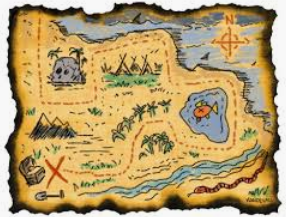
Secret Message
Create your own invisible ink.

Using a spoon, mix water and lemon juice. Dip a cotton bud into the mixture and write a message onto the white paper. Wait for the juice to dry so your message becomes completely invisible. When you are ready to read your secret message or show it to someone else, heat the paper by holding it close to a light bulb – be careful: maybe ask an adult to do this part. As the mixture heats up, your message should reappear so people can read it again.
Alternatively, the same result can be achieved by writing the message on white paper with a white candle or crayon. Then, paint over the message using coloured paint to reveal the writing.
For a challenge, come up with your own way of making invisible ink and try it out on your family.
‘Board’ Silly
Design and create your own board game for you and your family to play – perhaps play some existing board games first to research ideas.
There are a few key things to think about:
- What will your theme be?
- Will there be any ‘snakes’ or ‘ladders’ style elements?
- Do you need to make a dice using a cube net?
- Will there be any extra challenges or forfeits if you land on certain numbers?
Enjoy your games!

Extreme Reading
Reading is a great way to relax and learn about the world around us; also, reading regularly can help us to stay happy and healthy. This challenge is all about making reading even more fun. We’d love to know how many places you can read in. Try to read in a different place each day. Take photos or draw a picture of you doing it, if you can.
You could read…
- in a den that you’ve made
- up a tree
- under the bed/table
- to the dog/cat
- looking in a mirror
Stay safe and send your class teacher some pictures.
Come Dine/Bake with Me
Have your very own family ‘Come Dine With Me’ experience. Each family member could cook a meal or a course and then you must score each other out of ten. Similarly, each family member could bake something and you could all have a tasting after where you give points (like on Great British Bake Off). You don’t have to work on your own – you could help an adult.
Who will win?
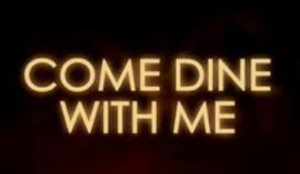
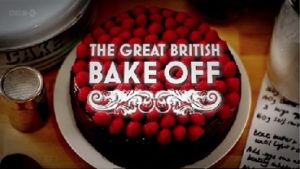
Den Building
Who doesn’t love making a den? Either in your house, or in your garden, spend time building a den and enjoy some time relaxing in it – if there’s more than one of you, you could make it a competition. Use whatever materials you can find and see how creative you can get.
You could also read in it and combine this challenge with the ‘Extreme Reading’ one.
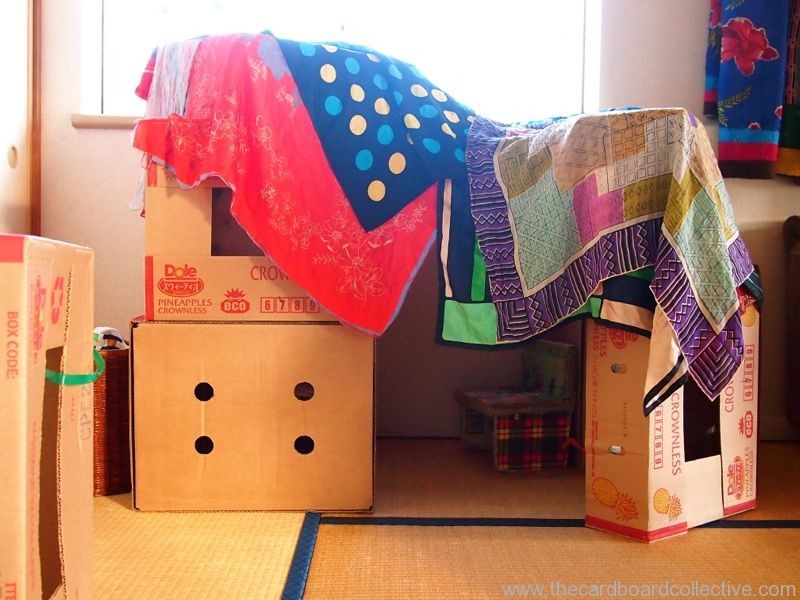
Get Ya Body Movin’
Staying physically active plays a crucial role in keeping us happy and healthy; it boosts our mental and emotional health, too. This task has three options – all of which are designed to get people moving during the holidays. You could include your family as well.
Option A: Create your own ‘Ninja Warrior’ style challenges in the garden or your house. Try to include a range of activities that include jumping, balancing, stretching, climbing and, if you’re feeling brave, water. The adults in your family will love a water challenge.
Option B: Create your own Joe Wicks style workout video. You could do it with your family or film yourself and send it to your friends. You might like to check out Joe Wicks’ YouTube channel for inspiration.
Option C: Choose your favourite song and create your own ‘Wake Up Shake Up’ (WUSU) dance routine. Again, you could lead this for your family to join in or film yourself and send it to friends or other family members. This’ll be a great way to get everyone dancing.
03 April 2020: Home Learning
Spellings
Get someone at home to test you on your spellings.
happiness / loneliness / thoughtfully / painless / colourful / humming / wrapping / dripped / clapped / funniest / hottest / hopeful / wishful
Reading
How did your poetry performance go? Perform the poem to an adult at home and ask for some feedback on your expression. Did you do a different voice for the dentist and for the crocodile? What does a crocodile who can speak even sound like? Did you include some actions?
It’s Friday so it’s our Love of Reading session again. Find somewhere quiet to sit and read. Parents/carers, take some time to read as well if you can!
Afterwards, chat about what you’ve read.
Maths answers
Answers were on the link from yesterday. Here it is again if you haven’t checked them.
https://woeijik.exampro.net/#atarget
Maths
Today’s learning are some puzzles to solve. The game is on the link below (make sure you allow flash to get it to work). If you have problems, screenshots of the levels are posted underneath the link. Children will need to draw the shapes before they try and solve. There’s a certain amount of trial and error involved so instead of re-drawing each time you make an error, it might be easier to make little cards for the numbers which you place on the powerlines. They don’t have to be fancy; some quick paper squares will work really well.
You need to make each line total the power line total using the numbers at the top. You can only use each number once. Well done if you manage to complete all eight levels. Some of them are tricky!
https://primarygames.co.uk/pg2/powerlines/powerlines1.html

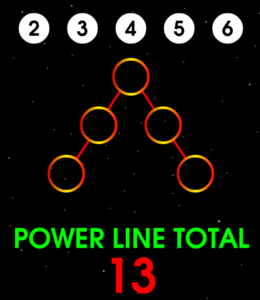






Science
In our science lesson today, we’re recapping our learning from last year about the water cycle.
First of all, consume the information on the following webpage:
https://www.bbc.co.uk/bitesize/topics/zkgg87h/articles/z3wpp39
Next, watch this water cycle video from YouTube (you will be singing it all weekend, sorry).
Finally, draw your own water cycle diagram. Making sure that you label it with scientific vocabulary:
evaporation
condensation
precipitation
run-off
If you’re struggling, here’s a diagram to help…

02 April 2020: Home learning
Spellings
Practise your spellings today by using the ‘rhymes and rememberings’ method.
happiness / loneliness / thoughtfully / painless / colourful / humming / wrapping / dripped / clapped / funniest / hottest / hopeful / wishful
Reading
Today, you’re going to be reading and performing poety. Make sure to read the poem out loud at least five times so you’re familiar with it and reading it fluently. Ask an adult if you don’t understand anything in the poem.
Then watch this video which explains how to perform poetry like a professional.
The poem to read and perform is ‘The Dentist and the Crocodile’ by Roald Dahl.

Maths answers

Maths
I’ve prepared addition and subtraction problems. You’ll need to click the link below to see them. Before jumping in to answer a question, they need to read the question carefully a couple of times and then decide whether they need to add or subtract. They should then perform the calculation. Check the answer to the calculation and then make sure they answer the question.
The first three questions are similar to problems we’ve already encountered this week.
The following four have data presented in a table or a chart. The numbers for these are smaller but the challenge comes from interpreting the data correctly.
The final three questions are two-step word problems where children need to do two things before getting to the answer.
(The answers to the questions are in the ‘Mark Scheme’ tab at the top.)
Good luck!
Writing

So what was on the other side of the fence? A monster? An enormous, unexplained hole? Mr Wilks bouncing on the trampoline?
In this lesson, I’d like you to think about what the boy was feeling at different parts of your story (feel free to reimagine it if you have new ideas).
For example: nervous, curious, excited, scared, shocked, etc.
I’d then like you to write six sentences beginning with a feeling. For example:
Curious, the boy peeked through the hole in the fence.
Intrigued by the noise, the boy moved tentatively towards the garden.
01 April 2020: Home learning
Spellings
Practise your spellings today by using the ‘silly sentences’ method.
happiness / loneliness / thoughtfully / painless / colourful / humming / wrapping / dripped / clapped / funniest / hottest / hopeful / wishful
Reading
Today, you’re going to draw the boy and the fox.
Then, write a speech bubble suggesting what the two characters would say to each other at the beginning of the story. And then another one for each character, at the end. Make sure you rewatch the clip and check you feelings graph from yesterday to show how they were both feeling at the time.
Maths answers



Maths

Challenge
Create your own addition pyramid for an adult (or older sibling) to solve. You need to make sure you have the answers ready for them! Email your pyramids to me and I’ll get back to you with my answers too.
Surely no one could make a pyramid four blocks high?!
History answers
1. When did the Anglo Saxon age begin in Britain? 410AD
2. Where did the Anglo Saxons come from? Germany, Denmark and the Netherlands. Also accept Scandinavia.
3. Tick the answer that is true:
a. The Anglo-Saxons were ruled by one king who took control of the whole of Britain.
b. The Anglo-Saxons were made up of different tribes who settled in different parts of Britain. TRUE
4. Who were the biggest tribes? The Angles, Saxons and the Jutes.
5. When they weren’t fighting, what was the main job that Anglo Saxons did? Farmers.
6. What was life like for Anglo Saxon girls and boys? They didn’t go to school. Girls helped around the home. They looked after animals, helped with cooking and cleaning and would fetch water. Boys learnt the skills of their fathers. They looked after animals and collected firewood. They also liked playing with toys made from wood.
7. Name three types of crops that Anglo Saxon farms grew. Wheat, oats and barley.
8. Name two types of animal that Anglo-Saxon hunters used to help them catch their prey. Hawks and dogs.
Writing

There was that noise again. This time it was louder and the ground trembled. I looked around to see if anyone else had heard it but my sister was too busy playing video games and my mum was on another Zoom conference call. I went into the garden and there it was again. A low rumbling noise. It was coming from next door’s garden. I tiptoed warily to the garden fence and peered through a hole. I couldn’t believe what I saw.
Your task is to continue the story. What did you see on the other side?
Make sure that you use punctuation correctly so that there are no squashed sentences. Well chosen vocabulary will help to make your writing more interesting. Conjunctions will add extra detail to your sentences. Most importantly, re-read your work to check for mistakes. Reading it out loud to an adult is the best way to re-read your work.